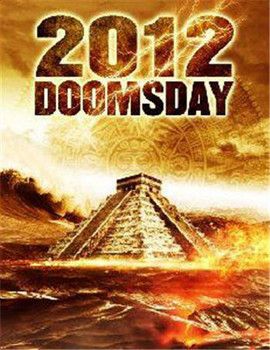Environment
On Newtown and the End of the World
Even when events turn tragic or apocalyptic, human reaction remains predictable.
Posted December 20, 2012

When I first started thinking about blog posts for this month it seemed like an obvious choice: this would be a great week to write about the psychology of the end of the world. You know, poke a little fun at the 12/21/12 doomsdaying, explore the psychology of how people deal with dire predictions that go unfulfilled, and so forth.
But that was before the horrific elementary school shooting in Newtown, Connecticut last Friday. It’s been hard to think of anything else since then, and writing a snarky it’s-the-end-of-the-world-as-we-know-it piece quickly lost its appeal.
Of course, there is no shortage of psychological questions to ask in the aftermath of Newtown either.
Questions surrounding the abnormal psychology of those who would perpetrate such atrocities. About how best to talk about the shooting with our kids. Concerning the perils of describing such crimes in easy-to-digest dispositional terms (i.e., the acts of an evil person), an oversimplified cop-out that gets us off the hook for more substantive discussions and debate. Or regarding why it takes a singular high-profile event to impact people when the slower trickle of gun deaths of children that have been plaguing particular cities in this country for a while now seemingly has not.
But I can’t really bring myself to write a whole blog post on any of these issues either. I’m spent. Emotionally, intellectually, and otherwise. Reading all that everyone else has written on the topic—and, perhaps even more so, some the unbelievable reader comments that follow—has exhausted me.
And then it dawned on me. Perhaps the two stories, Newtown and the purported end of the world, have more in common than first meets the eye, at least when it comes to the insights they offer regarding human nature.

This realization came as I re-read the opening chapter of When Prophecy Fails, written more 50 years ago by social psychologist Leon Festinger and colleagues. In the book, the researchers document the fascinating story of a group of Midwesterners who gave up most worldly possessions and relationships to prepare for a flood that they believed would end the world on December 21, 1954. The group expected to be rescued beforehand by a ship from outer space, and the book traces the psychological gymnastics the members put themselves through in order to maintain a semblance of sanity as their prophecy goes unfulfilled.
The book is worth a read in light of the convergence of several new doomsday predictions that supposedly converge on the calendar for tomorrow (or, rather, have been conveniently modified to now suddenly converge on tomorrow). But it’s also an insightful reminder of how we respond to less extraterrestrial events around us.
Here are the book's opening lines:
A man with conviction is a hard man to change. Tell him you disagree and he turns away. Show him facts or figures and he questions your sources. Appeal to logic and he fails to see your point.
We have all experienced the futility of trying to change a strong conviction, especially if the convinced person has some investment in his belief. We are familiar with the variety of ingenious defenses with which people protect their convictions, managing to keep them unscathed through the most devastating attacks.
But man’s resourcefulness goes beyond simply protecting a belief. Suppose an individual believes something with his whole heart; suppose further that he has taken irrevocable actions because of it; finally, suppose that he is presented with evidence, unequivocal and undeniable evidence, that his belief is wrong; what will happen? The individual will frequently emerge, not only unshaken, but even more convinced of the truth of his beliefs than ever before. Indeed, he may even show a new fervor about convincing and converting other people to his view.
It’ll be interesting to see the different ways in which this tendency manifests itself for doomsdayers come sunrise on 12/22/12. But it won’t be all that much different than the ability of other Americans to respond to, say, a graph of developed countries that plots number of guns by number of murders and concludes, ah, I see the problem; we need more guns in our homes, offices, malls, movie theaters, and schools.


